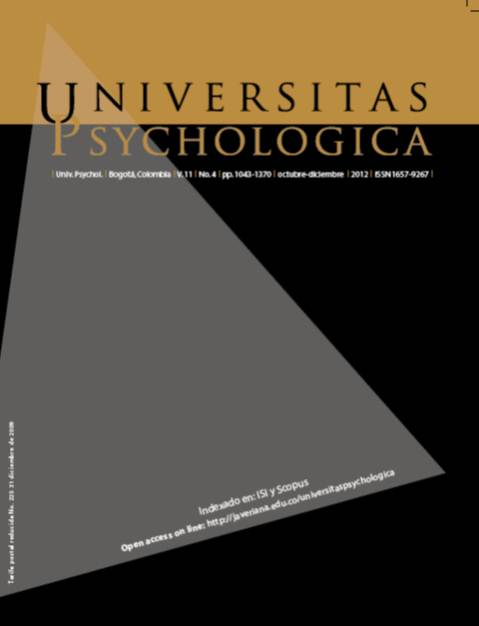Abstract
This study assesses the relation between coping strategies and emotions to know to what extend these are processes related to aggressive behavior. We assume that the aggression influence coping mechanisms in solving problems and handling of emotions: emotional instability (lack of self-control in stressful situations) or empathy (feelings faced to “other” who has a problem or need). A sample of 1.557 boys and girls, with an age range of 12-15 years, enrolled in first-cycle of Compulsory Secondary Education in 36 Scholar Centers in the Valencian Community, randomly selected, was evaluated. The results indicate clear differences between high and low aggression and coping mechanisms that they use. More aggressive adolescents used to a greater extent an unproductive coping, while less aggressive adolescents apply strategies more focused on solving the problem. In all structural equation models, the direct effect of emotional instability and empathy on aggression is significant, always positive in first case but negative in the second one. Besides, empathy promotes coping centered on the resolution of the problem whereas emotional instability is positively related to unproductive coping and this one with aggression.
This journal is registered under a Creative Commons Attribution 4.0 International Public License. Thus, this work may be reproduced, distributed, and publicly shared in digital format, as long as the names of the authors and Pontificia Universidad Javeriana are acknowledged. Others are allowed to quote, adapt, transform, auto-archive, republish, and create based on this material, for any purpose (even commercial ones), provided the authorship is duly acknowledged, a link to the original work is provided, and it is specified if changes have been made. Pontificia Universidad Javeriana does not hold the rights of published works and the authors are solely responsible for the contents of their works; they keep the moral, intellectual, privacy, and publicity rights. Approving the intervention of the work (review, copy-editing, translation, layout) and the following outreach, are granted through an use license and not through an assignment of rights. This means the journal and Pontificia Universidad Javeriana cannot be held responsible for any ethical malpractice by the authors. As a consequence of the protection granted by the use license, the journal is not required to publish recantations or modify information already published, unless the errata stems from the editorial management process. Publishing contents in this journal does not generate royalties for contributors.


